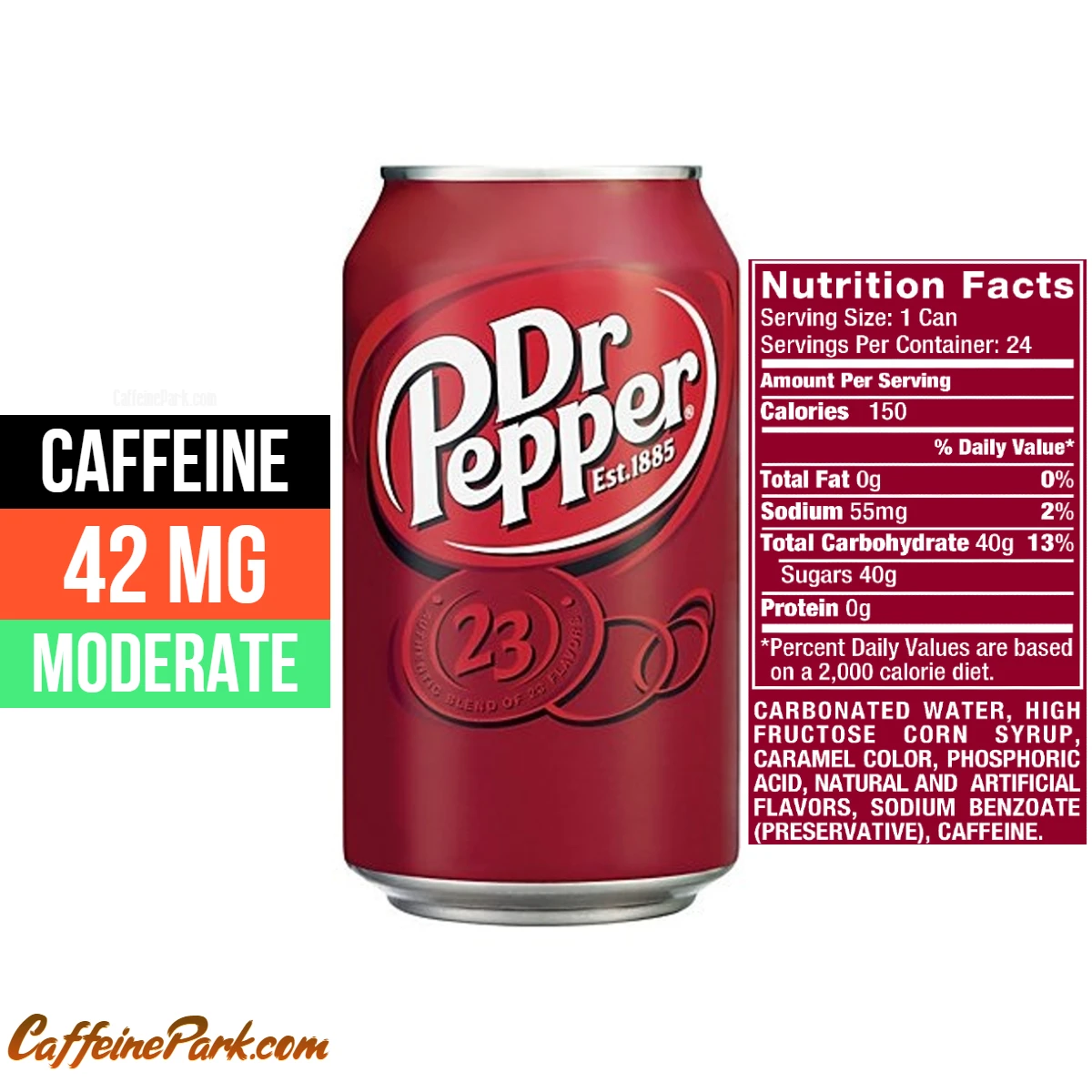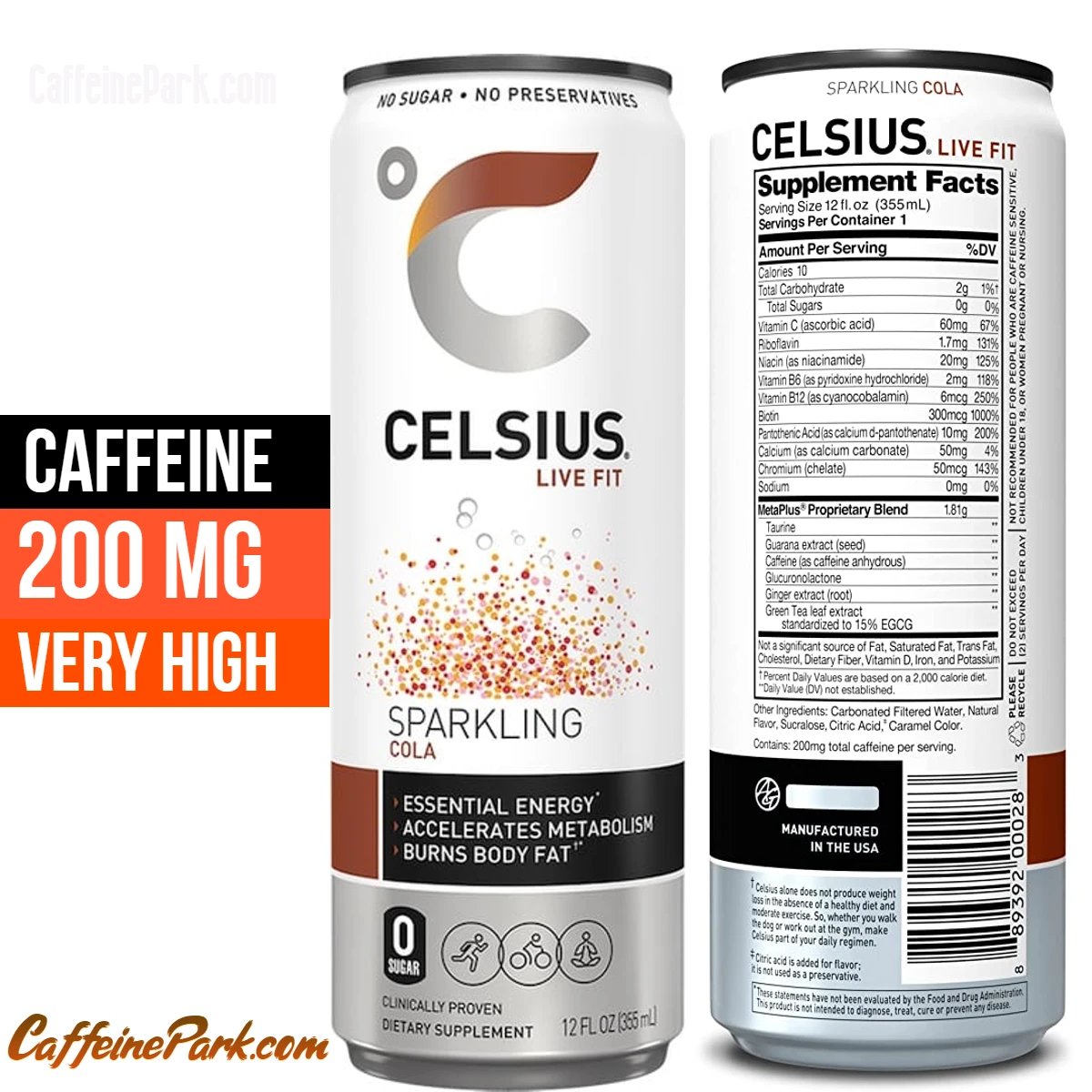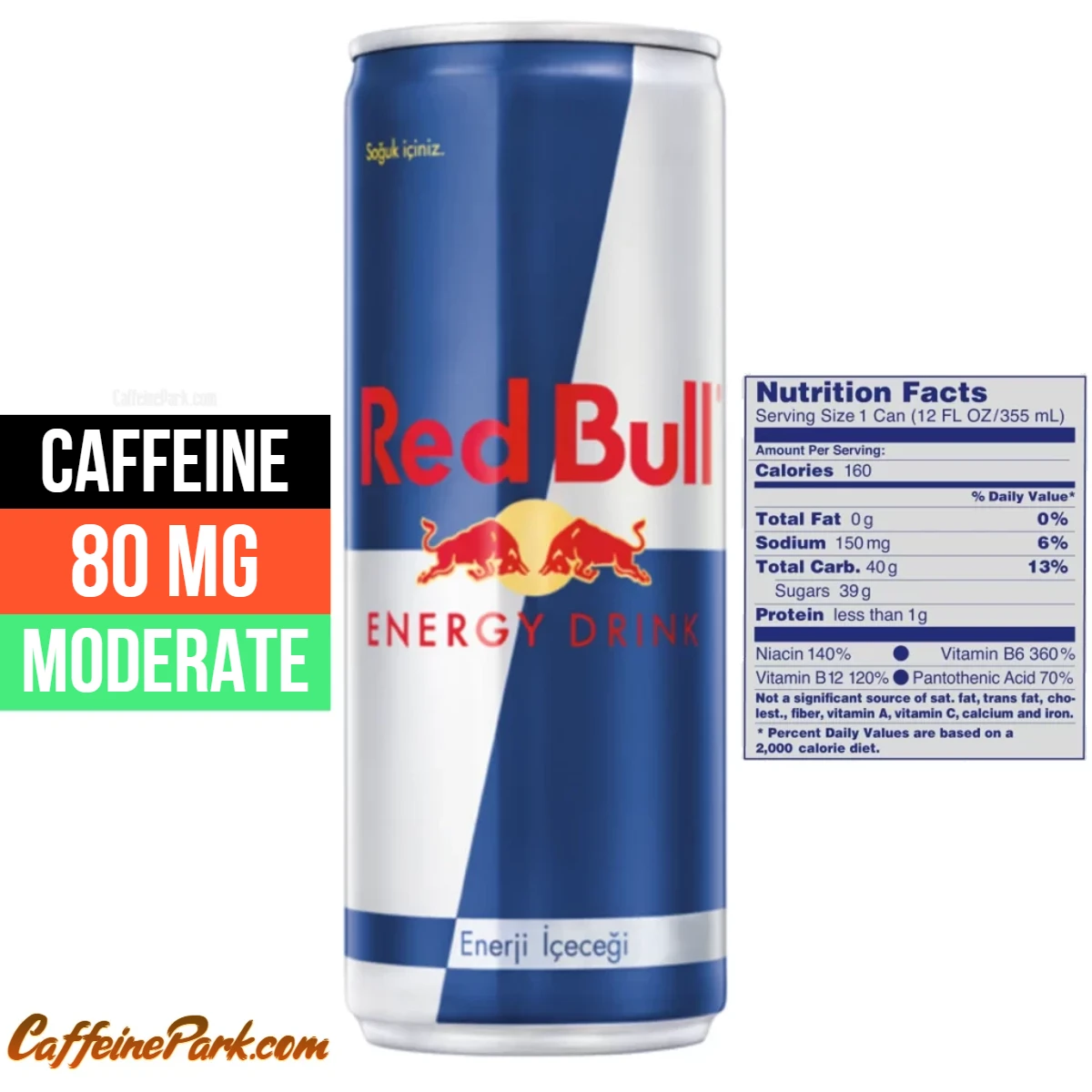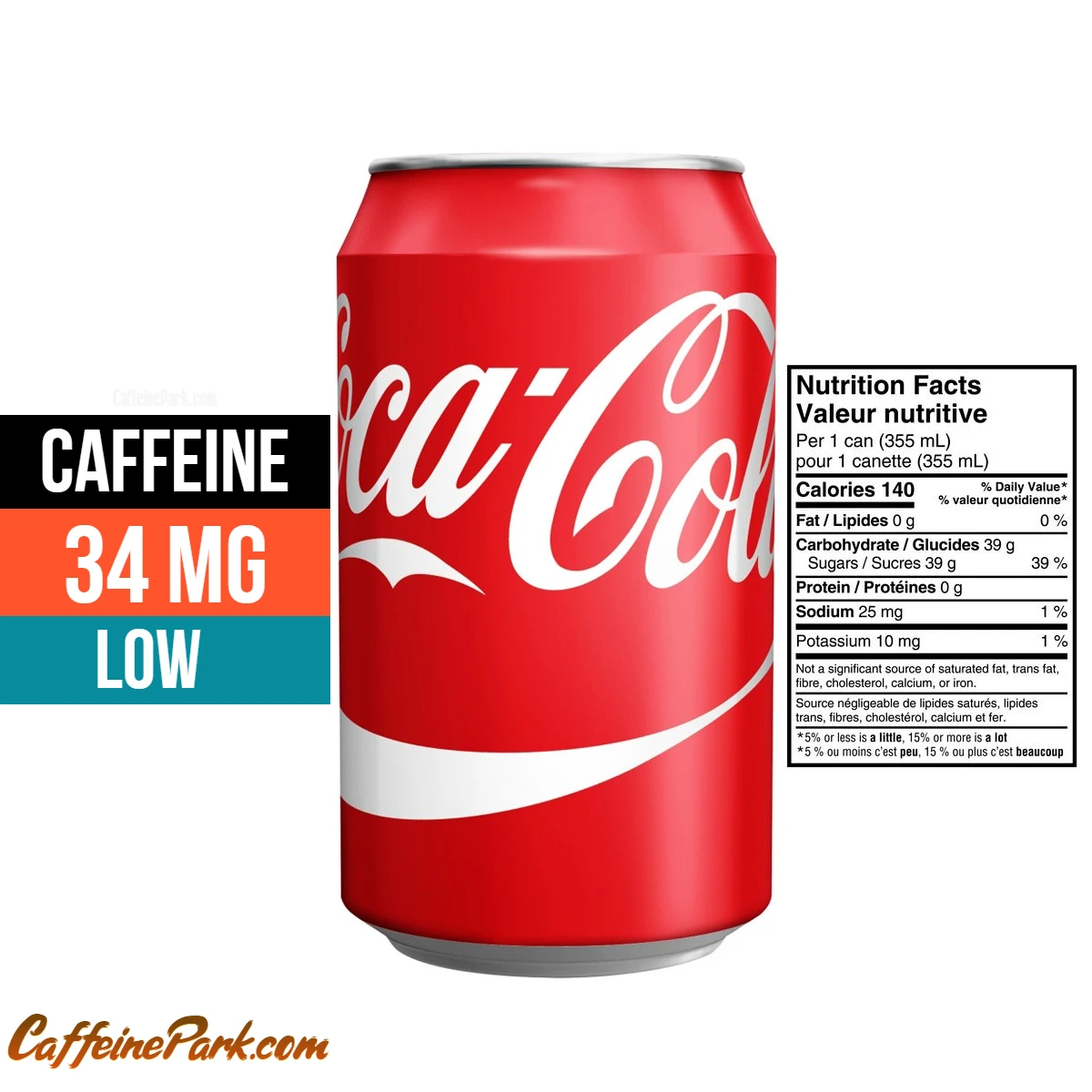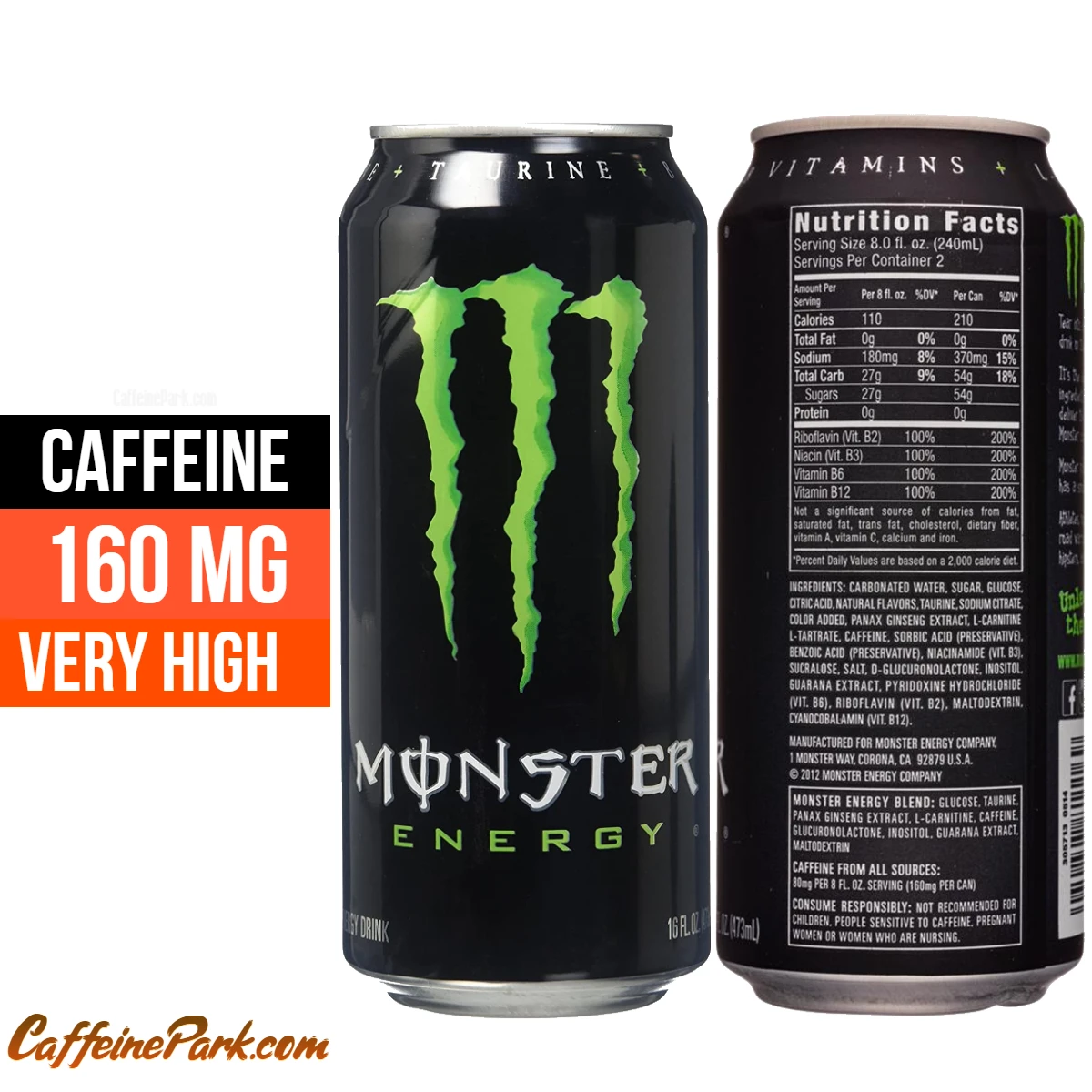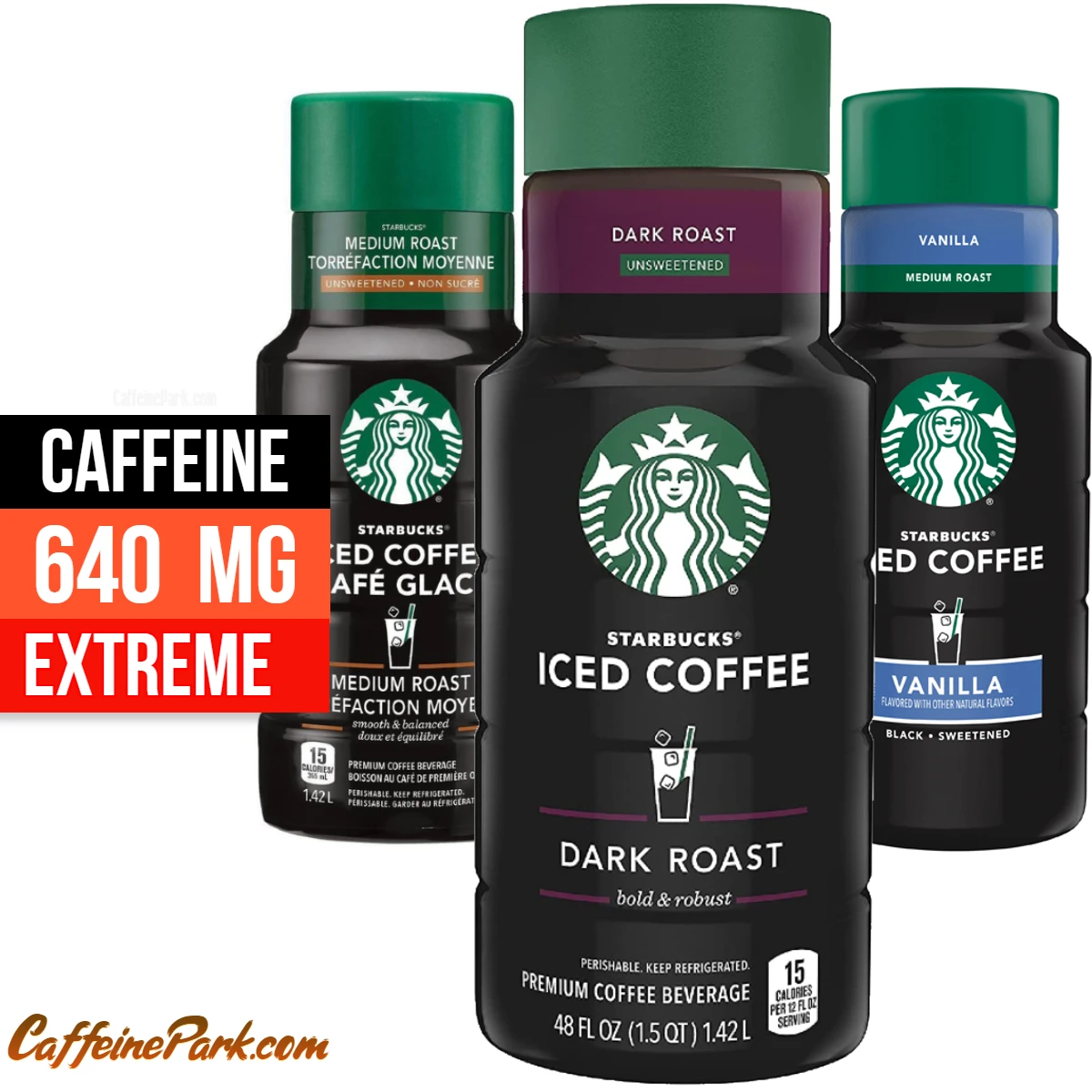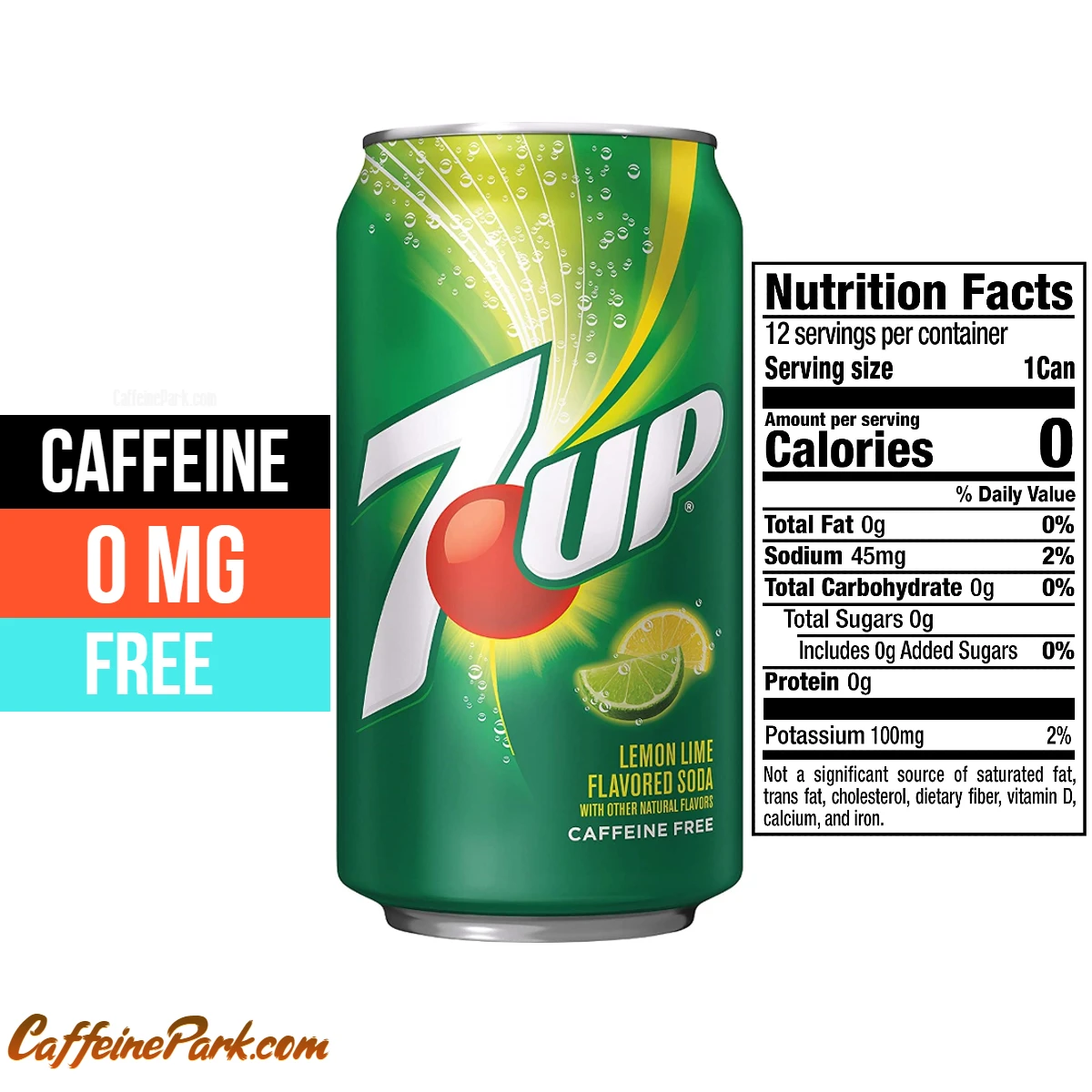
7Up is a brand of lemon-lime-flavored non-caffeinated soft drink. The rights to the brand are held by Keurig Dr. Pepper in the United States and by 7Up International in the rest of the world. The 7Up logo includes a red circle with the number “7” and the word “Up” written in green, with a green “splash” behind the “7.”
7Up was created by Charles Leiper Grigg, who launched his St. Louis–based company The Howdy Corporation in 1920. Grigg came up with the formula for a lemon-lime soft drink in 1929. The product, originally named “Bib-Label Lithiated Lemon-Lime Soda,” was launched two weeks before the Wall Street Crash of 1929. It contained lithium citrate, a mood-stabilizing drug, until 1950.
7Up was marketed as a hangover remedy and a thirst quencher, with the slogan “Make 7-Up Yours.” It was originally packaged in 7-ounce glass bottles, the same size as other leading soft drinks.
7Up is a non-caffeinated soft drink, meaning that it does not contain caffeine. Caffeine is a stimulant that is commonly found in coffee, tea, and many types of soft drinks, and it is known for its ability to help people stay alert and focused. However, caffeine is also a psychoactive drug, and it can have a number of negative side effects if consumed in excess, including insomnia, anxiety, and digestive issues.
Does 7Up have caffeine?
No, 7Up does not contain caffeine. It is a non-caffeinated soft drink, which means that it does not contain any caffeine.
| Serving size | Caffeine Amount | Calories | Caffeine strength |
|---|---|---|---|
| 100ml | 0 mg | 39.4 | CAFFEINE FREE |
| 8.4 fl oz | 0 mg | 98 | CAFFEINE FREE |
| 12 fl oz can | 0 mg | 140 | CAFFEINE FREE |
- Caffeine Amount: 0 mg
- Caffeine strength: CAFFEINE FREE
- Calories: 140
- Serving size: 12 fl oz can
- Sugar: 38 grams
Ingredients in 7Up
- Filtered Carbonated Water
- High Fructose Corn Syrup
- Citric Acid
- Potassium Citrate
- Natural Flavors
- Calcium Disodium Edta (to Protect Flavor)
Flavors of 7Up
7-up is available in the following flavors:
- Diet 7Up
- 7Up 10
- Cherry 7Up
- Diet Cherry 7Up
- Zero Sugar Cherry
- Zero Sugar 7Up
Compare caffeine in 7Up Vs. Similar sodas
| Similar sodas | Serving Size | Caffeine |
|---|---|---|
| 7up | 12 fl oz | 0mg |
| Fanta | 12 fl oz | 0mg |
| Dr Shasta Soda | 12 fl oz | 29mg |
| Ginger Ale | 12 fl oz | 0mg |
| Sprite | 12 fl oz | 0mg |
| Orange Crush | 12 fl oz | 0mg |
Compare Caffeine in 7Up vs Coffee
The caffeine content in 7Up and coffee can vary depending on the specific product and serving size. Generally speaking, coffee is known to have a higher caffeine content than 7Up.
A standard 8-ounce serving of coffee typically contains around 95 milligrams of caffeine, while a 12-ounce can of 7Up contains no caffeine at all. However, there are variations in caffeine content among different types of coffee and different brewing methods. For example, a 1-ounce shot of espresso can contain as much as 64 milligrams of caffeine, while a 12-ounce cup of decaf coffee may contain only 2-5 milligrams.
It is worth noting that while caffeine is a natural stimulant and can provide a temporary boost in energy and alertness, excessive consumption can lead to negative side effects such as insomnia, anxiety, and jitters. It is generally recommended to limit caffeine intake to no more than 400 milligrams per day for most adults.
Alternative to 7Up
If you’re looking for an alternative to 7Up, there are several options available. Here are a few:
- Sprite: Sprite is a lemon-lime flavored carbonated beverage that is similar in taste to 7Up. It is also caffeine-free and contains no artificial colors or flavors.
- Ginger ale: Ginger ale is a carbonated beverage that is flavored with ginger. It has a sweet and slightly spicy taste and is often used as a remedy for nausea and upset stomachs. Most ginger ales are also caffeine-free.
- Club soda: Club soda is a carbonated beverage that is often used as a mixer for cocktails. It is made from carbonated water and contains no calories or caffeine. It has a slightly salty taste and is often used to cut the sweetness of other drinks.
- Sparkling water: Sparkling water is carbonated water that is infused with natural flavors. It is available in a wide variety of flavors, including lemon-lime, grapefruit, and raspberry. It is calorie-free and contains no caffeine or artificial flavors.
- Lemonade: Lemonade is a non-carbonated beverage that is made from lemon juice, sugar, and water. It has a tart and refreshing taste and is often served over ice. Most lemonades contain no caffeine and can be made at home with fresh ingredients.
Ultimately, the best alternative to 7Up depends on your personal taste preferences and dietary restrictions. However, the options listed above are all great alternatives that are widely available and offer a similar taste profile to 7Up.
Review
7Up is a popular brand of lemon-lime flavored soft drink that is available in over 140 countries worldwide. It has a number of variant products, including cherry-flavored, low-calorie, and sugar-sweetened versions. The brand has a long history, dating back to its creation in 1929, and it has been the subject of numerous marketing campaigns over the years.
7Up has a distinctive lemon-lime flavor that is often described as crisp and refreshing, and it is known for its thirst-quenching and hydrating properties. The drink has faced some controversy over its use of ingredients such as brominated vegetable oil (BVO) and artificial sweeteners, but it remains a popular choice for many consumers.
Overall, 7Up is a classic and well-known soft drink that is enjoyed by people of all ages and in many different countries around the world. Its refreshing flavor and lack of caffeine make it a popular choice for people looking for a tasty and hydrating beverage.
History
7Up was created by Charles Leiper Grigg, who launched his St. Louis–based company The Howdy Corporation in 1920. Grigg came up with the formula for a lemon-lime soft drink in 1929, and the product was originally named “Bib-Label Lithiated Lemon-Lime Soda.” It contained lithium citrate, a mood-stabilizing drug, until 1950.
Grigg launched 7Up on the market in October 1929, just two weeks before the Wall Street Crash of 1929. Despite the challenging economic conditions, 7-Up was an immediate success, and it quickly gained a reputation as a hangover remedy and a thirst quencher.
In the 1930s and 1940s, 7Up was packaged in 7-ounce glass bottles, and it was marketed with the slogan “Make 7Up Yours.” The brand expanded rapidly during this time, and it was introduced in a number of new markets around the world.
In the 1950s and 1960s, 7Up continued to grow in popularity, and it introduced a number of new products, including cherry-flavored and diet versions of the drink. The brand also expanded its advertising efforts, and it launched a number of successful marketing campaigns.
In the 1970s, 7Up introduced the slogan “The Uncola” as part of a campaign to position itself as an alternative to cola drinks. The brand also introduced a distinctive new design for its cans, featuring a silver and green color scheme and a stylized “7” logo.
In the 1980s and 1990s, 7Up continued to expand its product line and increase its marketing efforts. The brand introduced a number of new flavors, including apple and fruit punch, and it also launched a number of successful advertising campaigns, including the slogan “Feels Good to Be You.”
In the 21st century, 7Up has faced a number of challenges, including increased competition from other soft drink brands and concerns about the use of ingredients such as high fructose corn syrup and artificial sweeteners. However, the brand has remained popular, and it continues to be a top seller in many countries around the world.
Taste
7Up has a distinctive lemon-lime flavor that is often described as crisp, refreshing, and clean. The exact blend of flavors used in 7Up is a closely guarded secret, but it is known to include a combination of lemon and lime oils, as well as other natural flavors.
The lemon-lime flavor of 7Up is often compared to other lemon-lime sodas, such as Sprite and Sierra Mist. However, some people believe that 7Up has a more subtle and nuanced flavor than these other brands, with a less overpowering sweetness and a more balanced mix of citrus flavors.
In addition to its original lemon-lime flavor, 7Up has also been released in a number of other flavors over the years, including cherry, apple, and a variety of fruit-flavored versions. These flavors are intended to appeal to a wider range of taste preferences and to offer additional variety for 7Up fans.
Caffeine content
7Up was originally marketed as a caffeine-free alternative to other soft drinks, and it was often advertised as a thirst quencher and a hangover remedy. The brand’s slogan, “Make 7Up Yours,” played on the idea that 7Up could be enjoyed by anyone, at any time, without the negative effects of caffeine.
Today, 7Up continues to be a popular choice for people who are looking for a refreshing and hydrating beverage that does not contain caffeine. It is also a good option for people who are sensitive to caffeine or who need to avoid it for other reasons.
Variants
7-Up has a number of variant products, including:
- 7-Up Cherry: a cherry-flavored version of 7Up
- 7-Up Plus: a version of 7Up with added fruit juices
- 7-Up Retro: a version of 7Up made with sugar and flavored with real lemon juice
- 7-Up Ten: a low-calorie version of 7Up with 10 calories per serving
Ingredients
The primary ingredients in 7Up are:
- Carbonated water
- High fructose corn syrup (or sugar, depending on the country)
- Citric acid
- Natural flavors
- Sodium citrate
International availability
7-Up is available in over 140 countries worldwide. In some countries, it is known by a different name:
- In Spain, it is known as “7Up Free”
- In Mexico, it is known as “7Up Light”
- In the United Kingdom and Ireland, it is known as “7Up Free”
- In the Middle East, it is known as “7Up Ice Cool”
- In some parts of Asia, it is known as “7Up Gold”
Controversies
In the early 1990s, 7Up came under fire for its use of brominated vegetable oil (BVO), a flame retardant, in its recipe. The use of BVO in food and drinks was banned in several countries, including India and Europe, due to concerns about its potential health effects. In response to the controversy, 7-Up removed BVO from its ingredients list in the United States in 2013.
In 2016, 7-Up was criticized for using artificial sweeteners in its diet and low-calorie products. Some studies have suggested that artificial sweeteners may have negative effects on health, including an increased risk of weight gain, type 2 diabetes, and other health problems. However, the long-term effects of artificial sweeteners are still the subject of debate, and more research is needed to fully understand their potential risks and benefits.
Marketing and Advertising
7-Up has been the subject of numerous marketing campaigns over the years. Some of the most notable campaigns include:
- “Make 7-Up Yours”: This was the original slogan for 7-Up, and it was used to emphasize the versatility of the drink as a mixer and a stand-alone beverage.
- “The Uncola”: In the 1970s, 7-Up launched a campaign to position itself as an alternative to cola drinks, using the slogan “The Uncola.” The campaign included TV commercials featuring people rejecting cola drinks in favor of 7-Up.
- “Never Had It, Never Will”: In the 1980s, 7-Up ran a campaign featuring the slogan “Never Had It, Never Will,” which was intended to differentiate the brand from competitors that used caffeine or other stimulants in their products.
- “Feels Good to Be You”: In the 1990s, 7-Up launched a campaign featuring the slogan “Feels Good to Be You,” which focused on the refreshing and uplifting qualities of the drink.
In addition to traditional advertising campaigns, 7Up has also sponsored a number of events and initiatives over the years. For example, 7Up sponsored the 1980 Winter Olympics in Lake Placid, New York, and has also sponsored music festivals and sporting events.
Packaging
7Up has been packaged in a variety of containers over the years, including glass bottles, aluminum cans, and plastic bottles. In the 1970s, 7Up introduced a distinctive “futuristic” design for its cans, which featured a silver and green color scheme and a stylized “7” logo. This design was updated in the 1980s and has undergone several further updates since then.
In addition to its standard packaging, 7Up has also been sold in a number of novelty containers, such as miniature glass bottles and large plastic jugs. In some countries, 7Up is also available in vending machines and in fountain form at restaurants and other locations.
Flavor
7Up has a distinct lemon-lime flavor that is often described as crisp and refreshing. The exact blend of flavors used in 7Up is a closely guarded secret, but it is known to include a combination of lemon and lime oils, as well as other natural flavors.
In addition to its original lemon-lime flavor, 7Up has also been released in a number of other flavors over the years. These include cherry, apple, and a variety of fruit-flavored versions.
Popularity
7Up has been a popular choice for soft drinks for many decades, and it continues to be a top seller in many countries around the world. According to Keurig Dr. Pepper, 7Up is one of the top 10 selling flavored carbonated soft drinks in the United States, with a particular focus on the millennial market. In addition, 7Up has a strong international presence, with particularly high sales in Latin America and Europe.
FAQs
Yes, 7-Up is a non-caffeinated soft drink, which means that it does not contain any caffeine.
The primary ingredients in 7Up are carbonated water, high fructose corn syrup (or sugar, depending on the country), citric acid, natural flavors, and sodium citrate.
According to the company, 7Up is suitable for vegans and vegetarians, as it does not contain any animal-derived ingredients.
7Up is considered to be gluten-free, as it does not contain any gluten-containing ingredients. However, it is worth noting that the company’s products are manufactured in facilities that also process gluten-containing ingredients, so there is a possibility of cross-contamination.
Yes, 7Up is certified kosher by the Orthodox Union (OU). This means that it has been produced according to Jewish dietary laws and is considered acceptable for consumption by those who follow a kosher diet.
Yes, in some countries, 7Up is sweetened with high fructose corn syrup. High fructose corn syrup is a sweetener made from corn starch that has been treated with enzymes to convert some of its glucose into fructose. It is often used as a cheaper alternative to sugar in processed foods and drinks.
There is no definitive answer to this question, as the potential health effects of 7-Up depend on a number of factors, including how much of it is consumed and an individual’s overall diet and lifestyle. Some people may be more sensitive to the ingredients in 7-Up, such as high fructose corn syrup or artificial sweeteners, and may need to limit their consumption of the drink. It is generally recommended to consume all types of sugary drinks, including 7-Up, in moderation as part of a well-balanced diet.
Some versions of 7Up, such as 7Up Ten and other low-calorie versions, contain artificial sweeteners. Artificial sweeteners are non-nutritive sweeteners that are used to sweeten foods and drinks without adding calories or sugar. Some common artificial sweeteners used in 7-Up include aspartame and acesulfame potassium.
Yes, 7Up is certified kosher for Passover by the Orthodox Union (OU). This means that it has been produced according to Jewish dietary laws and is considered acceptable for consumption by those who follow a kosher diet during the Passover holiday.
The pH of 7Up is 3.6, which means that it is slightly acidic. The pH scale measures the acidity or basicity of a solution, with values ranging from 0 to 14. A pH of 7 is considered neutral, while values below 7 are considered acidic and values above 7 are considered basic.
Yes, 7Up is often mixed with alcohol to create cocktails and other mixed drinks. Some popular 7Up cocktails include the 7Up Smash, the 7Up Punch, and the 7Up Collins. It is worth noting that mixing alcohol with any type of beverage, including 7Up, can increase the risk of overconsumption and impair judgment. It is important to drink responsibly and in moderation.
No, 7Up is not owned by Coca-Cola. The rights to the 7Up brand are held by Keurig Dr. Pepper in the United States and by 7 Up International in the rest of the world. Keurig Dr. Pepper is a publicly traded company that is not affiliated with Coca-Cola.
Read More:
- Caffeine in a Pepsi
- Caffeine in a Coca-Cola Classic
- Caffeine in a Coffee Friend Brewed Coffee
- How Much Caffeine is in a Monster
- Pepsi vs 7Up
- Bubble Up vs 7Up
- 7UP Diet vs 7UP Zero
- Sierra Mist vs 7UP
- 7Up vs Mountain Dew
- 7Up vs Ginger Ale
- 7Up vs Coca Cola
- 7UP vs Sprite
Contents
